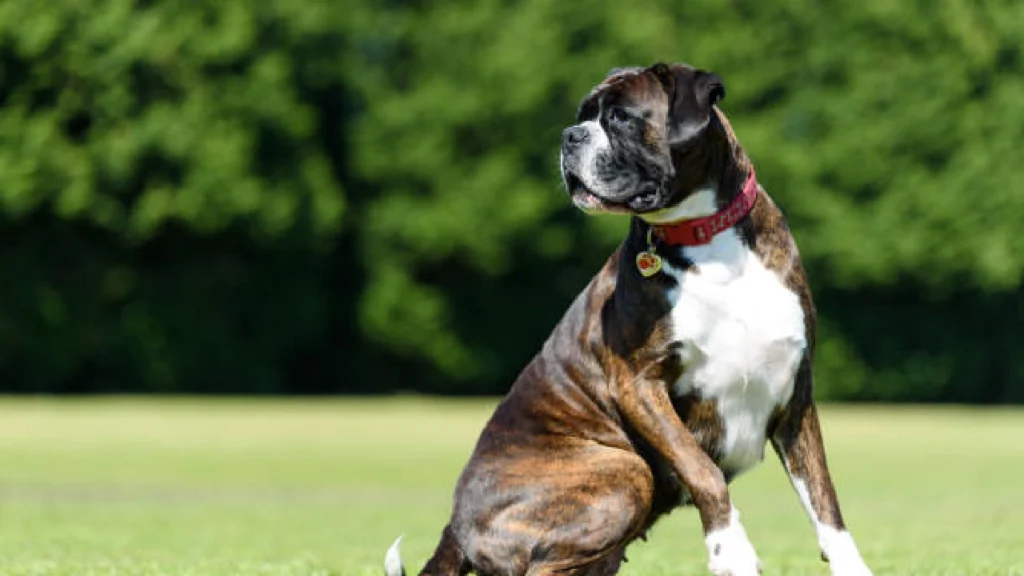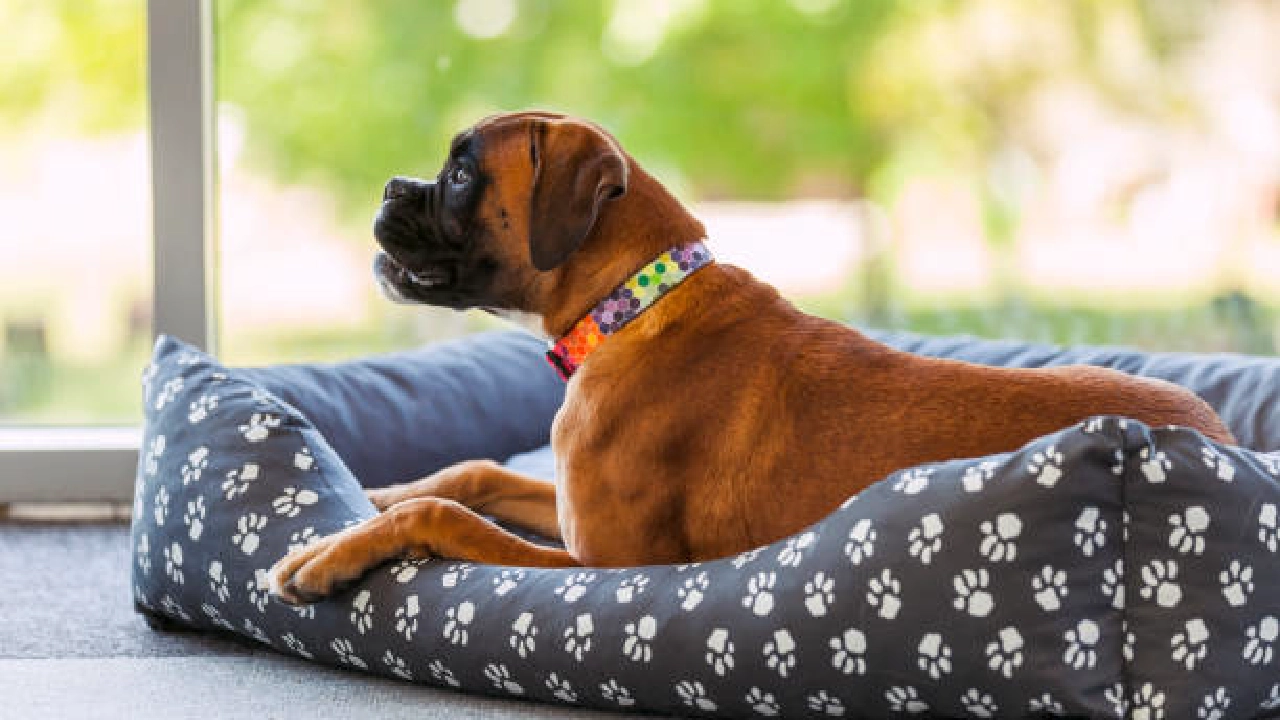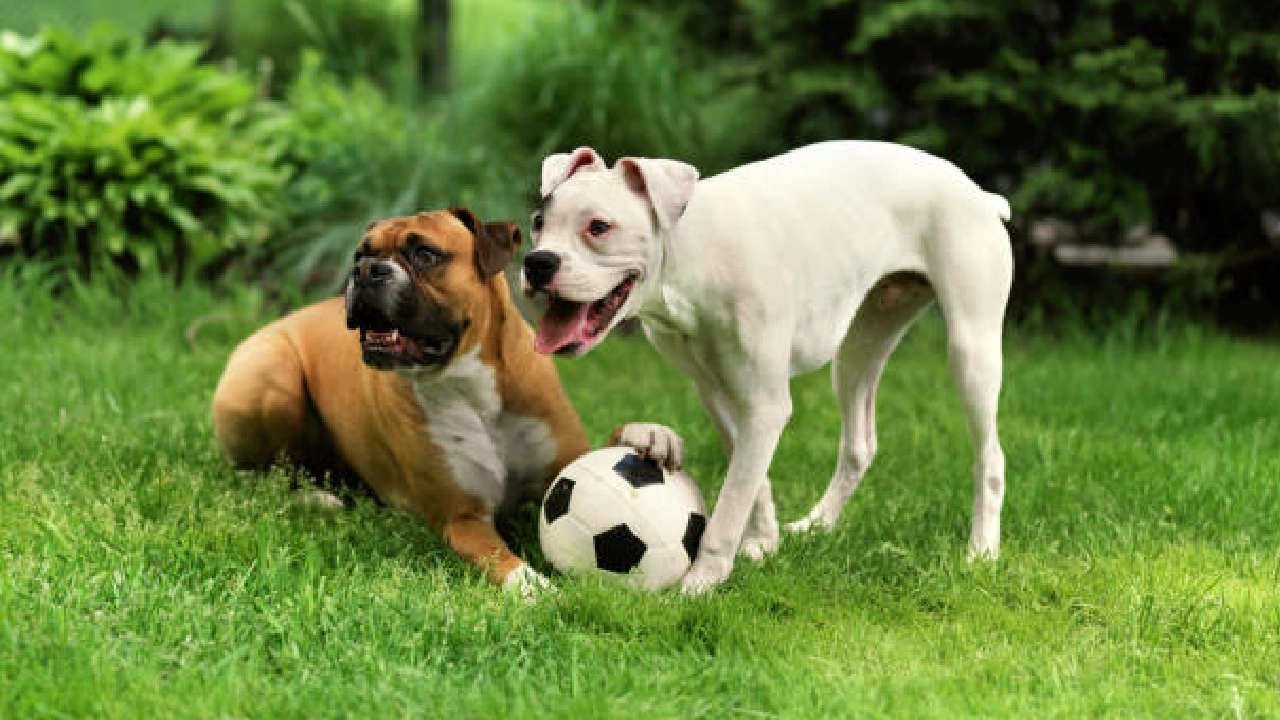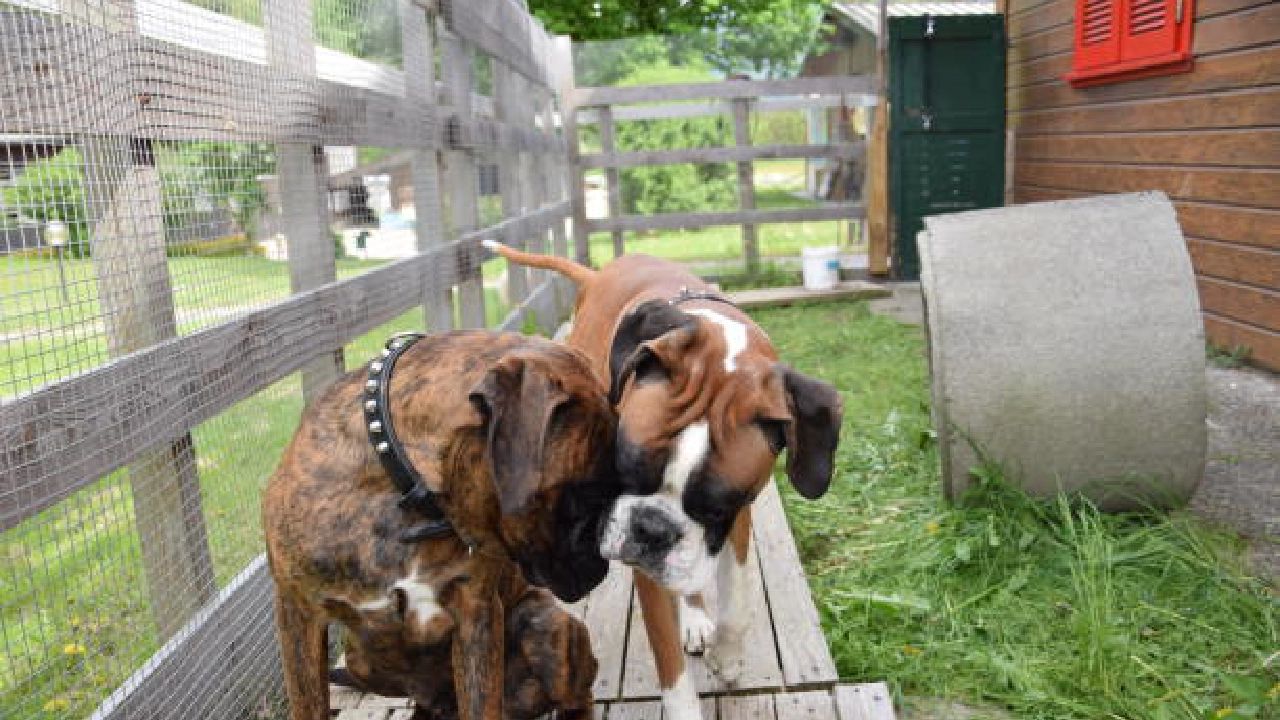Growing up with dogs is a privilege some people have. I was fortunate to experience that in my life. I grew up with a pair of Boxers who were mother and daughter. Coincidentally, the daughter was born around the same time as me.
I loved my dogs, Rebecca and Stephanie. The love, care, fun, and protection a Boxer provides is an experience that lasts a lifetime and teaches us to be more humane.
Rebecca was as protective of me as she was of Stephanie, and Stephanie was my first friend. The bond I had with them is something I will cherish forever. It’s been more than a decade since they both passed, but their memories and love continue to help me move forward in life.
This is a little guide I’ve put together to help you take care of your Boxer. These are a few tips and tricks I’ve learned that made my Boxers livelier than most.

1. Heat Management
Managing heat is the most important aspect of caring for Boxers, as they need a cooler space to thrive. This ensures they are not fatigued by the hot weather.
- Limit Outdoor Activity: Boxers are prone to heat exhaustion, so avoid taking them out during the hottest parts of the day. Early mornings or late evenings are ideal for walks.
- Cool Indoor Environment: Ensure your home is well-ventilated, and consider using air conditioning or fans to keep your Boxer comfortable. Boxers are prone to breathing difficulties, so keeping them cool is essential.
- Hydration: Provide plenty of fresh water throughout the day. Keep water accessible both indoors and during outdoor activities.
2. Exercise
Boxers are energetic and need regular exercise to prevent boredom and maintain good health.
- Regular, Moderate Exercise: Daily playtime, mental stimulation, and moderate exercise are key.
- Indoor Activities: On very hot or rainy days, consider indoor play like fetch in an open space or puzzle toys to keep them entertained and active.
Many Boxers enjoy watching TV and listening to music. I loved watching animated movies with mine.
3. Living Space and Environment
- Space Requirements: While Boxers adapt well to apartment living, they are medium to large dogs and benefit from having space to move around.
- Bedding: You can choose a ready-made bed, futon, mat, or custom non-heating mat/futon for your Boxer. They’ll enjoy it, but on hot days, they might prefer sprawling on a cool floor.
- Avoid Rough Surfaces: Boxers have short coats and are prone to skin issues, so provide comfortable, clean bedding to protect their skin.
If you have plants, ensure they’re not poisonous or pollen-producing, as this can cause respiratory, skin, and digestive issues.
Plants to avoid include:
Grass pollen (Bermuda and Timothy), poison ivy, oak, sumac, aloe vera, philodendron, dieffenbachia, pothos, sago palm, tulips, daffodils, azaleas, foxglove, rhododendrons, oleander, cedar, oak, maple, wild mushrooms, and fungi.
Even though aloe vera has healing properties, ingestion can cause digestive upsets in Boxers.
4. Diet and Health
- Balanced Diet: Boxers need a balanced, nutritious diet tailored to their energy level and activity. Consult a vet for recommendations, especially if they have allergies or sensitivities.
- Protein: Saltless bone (beef/chicken) soup and rice are staples 2–3 times a week. This strengthens their immune system. Make sure the food is well-cooked and monitor their eating habits.
- Fruits: Seedless watermelon, apples, bananas, blueberries, and mangoes (without pits) can be occasional treats. Always consult your vet.
- Commercial Dog Food: Use age-appropriate options like Pedigree in recommended amounts.
- Veterinary Care: Schedule regular vet visits and keep up with vaccinations. Pay special attention to conditions like hip dysplasia and heart issues.
5. Socialisation, Training, and Mental Stimulation
- Socialise Early: Boxers are friendly and social. Early socialisation helps them adapt to various people and environments.
- Trust Their Instincts: Boxers are perceptive and can sense danger or unusual behaviors. Trust their instincts—they’re usually right.
- Consistency is Key: Use clear and consistent commands for training. Boxers thrive on structure and routine.
- Mental Stimulation: Use interactive toys, training sessions, and socialisation with other dogs to keep them mentally engaged and reduce unwanted behaviors.
6. Mating
Boxer puppies are adorable and fun to have around, but taking care of the mother and newborns is crucial during the mating, pregnancy, and post-delivery periods.
- Health Screening: Conduct thorough health checks and genetic testing to rule out hereditary issues like hip dysplasia and heart problems.
- Climate Control: Provide a cool, well-ventilated space, as Singapore’s hot climate can stress pregnant Boxers and their puppies.
- Regulatory Compliance: Follow Singapore’s AVS licensing requirements for breeding and ensure all procedures comply with animal welfare standards.
With attention to climate, health care, and living conditions, Boxers can thrive as loving and loyal companions for up to 15–17 years.
Growing up in a tropical region like India, I understand that not every amenity may be feasible. However, a fan, affordable food, water, vet visits, and love can go a long way in ensuring that your Boxer lives a long and fulfilling life with you.







